AMD has been working hard to boost sales of Zen 5 CPUs since their launch two months ago. After several generations of exciting Ryzen CPU launches, this one has been much more disappointing. Since Zen 5's debut, we've received a new version of Windows with AMD-specific optimizations, countless BIOS updates, new power profiles, alleged memory improvements, and price cuts. All of this has come together to make Zen 5 better… or has it?
Earlier this month, we compared the Zen 5-based Ryzen 7 9700X with the 2.5-year-old Ryzen 7 5800X3D across a range of games using Windows 11 24H2, along with the latest AGESA code from AMD.
In summary, the 5800X3D was only slightly slower than the 9700X, which is impressive for a Zen 3 processor. However, this isn't exactly a buying recommendation since the 5800X3D is no longer widely available.
You can still find the 5700X3D for around $200, which is an exceptional deal, though it only makes sense if you're already on the AM4 platform. Otherwise, the newer Ryzen 7 7700X, which can still be found for as low as $245, presents a more relevant option.
The 7700X and its non-X version have posed a significant challenge to the 9700X, largely due to aggressive discounting and, of course, the underwhelming Zen 5 performance.
The 9700X launched with an MSRP of $360, which at first glance seems like a nice discount from the $400 MSRP of the 7700X – until you realize the 9700X really should have been called the 9700, being a 65W part, it should have been priced at $330, especially considering it doesn't include a cooler like the 7700 did.
Nevertheless, as usual AMD got there in the end, discounting the 9700X shortly after reviews went live. You'd think they would have led with that, especially after several similar missteps in the past, but okay. Even with the discount, the 7700X remains available for between $245 and $290, making it a strong competitor, but at $330, the 9700X becomes more appealing.
Helping the attractiveness of the 9700X would be better gaming performance, and AMD is hoping the Windows branch prediction optimizations will deliver just that. So today we're comparing the 9700X with the 7700X and 7700 non-X in a variety of games using the latest Windows build (24H2) and the latest AGESA 1.2.0.2 BIOS revision.
We won't be enabling the optional 105W TDP mode for the 9700X, as that's similar to enabling PBO. Instead, we've included the 7700 for a 65W Zen 4 vs. 65W Zen 5 comparison. We're also not testing on an X870E motherboard since X870E and X670E are essentially identical – X870E just mandates USB4 support via a third-party controller. So, for all practical purposes, X870E and X670E are the same chipsets, just with different labels.
Additionally, DDR5-8000 support isn't exclusive to Zen 5; it can also run on Zen 4, provided you have a motherboard that supports it. Despite AMD's claim that X870 motherboards are ideal for DDR5-8000 memory, many can't handle it reliably, failing stress tests within an hour. We'll be releasing a detailed review on this in the coming weeks, once we've completed testing every X870 and X870E motherboard.
So, with a small price cut, BIOS updates, and a new version of Windows 11, how does the gaming performance of the 9700X stack up against the 7700 and 7700X?
Test System Specs
| CPU Motherboard Memory |
|
| AMD Ryzen 7 9700X AMD Ryzen 7 7800X3D AMD Ryzen 7 7700X AMD Ryzen 7 7700 G.Skill Trident Z5 RGB 32GB DDR5-6000 CL30 Gigabyte X670E Aorus Master [BIOS F33b] DDR5-6000 [CL30-38-38-96] |
|
| AMD Ryzen 7 5800X3D MSI MPG X570S Carbon MAX WiFi [BIOS 7D52v 1B] G.Skill Ripjaws V Series 32GB DDR4-3600 CL14 DDR4-3600 [CL14-15-15-35] |
|
| Graphics Card | Asus ROG Strix RTX 4090 OC Edition |
| ATX Case | Antec Flux Pro |
| Power Supply | Kolink Regulator Gold ATX 3.0 1200W |
| Storage | TeamGroup T-Force GE PRO M.2 PCle Gen5 NVMe SSD 4TB |
| Operating System | Windows 11 |
| Display Driver | GeForce Game Ready Driver 565.90 WHQL |
To find out, we've updated our review data. While this isn't a 40+ game benchmark, we've focused on a 14-game benchmark, based on titles we'll be using for our upcoming Zen 5 X3D and Intel Arrow Lake reviews. Let's dive in.
Benchmarks
Star Wars Jedi: Survivor
First up, we have Star Wars Jedi: Survivor, where the 9700X averaged 161 fps, making it 4% faster than the 7700X and 7% faster than the 7700. While this isn't an extraordinary result, it's better than what we've come to expect from Zen 5. This performance is also similar to the 5800X3D, though it's a little over 20% slower than the 7800X3D.
The Last of Us Part 1
Testing with The Last of Us Part 1 shows the 9700X leading the 7700X by a mere 2%, while being less than 1% faster than the 7700. We're talking about a difference of fewer than 3 frames at over 170 fps, so it's safe to conclude that the 9700X, 7700X, and 7700 all deliver essentially the same performance in this case.
Cyberpunk 2077: Phantom Liberty
Although Windows 11 24H2 dramatically boosts performance in Cyberpunk 2077: Phantom Liberty, we find that Zen 4 and Zen 5 scale fairly evenly. In fact, with the official release of this operating system, Zen 4 parts were a few frames faster. Overall, the performance is close enough to be considered identical.
Hogwarts Legacy
The 24H2 update also improved performance in Hogwarts Legacy, with the 9700X averaging 125 fps, just a single frame faster than the 7700X and 4 frames ahead of the 7700, marking a 3% improvement.
Assetto Corsa Competizione
Assetto Corsa Competizione remains a major outlier, as it was in our original review. Here, the 9700X is able to match the 5800X3D more closely thanks to the larger L1 cache, resulting in a performance boost of around 20% compared to the Zen 4 models without 3D V-Cache. However, this significant uplift is an outlier and isn't reflected in most other games we've tested.
Remnant II
In Remnant II, the 9700X performs well, averaging 126 fps, beating the 7700 by 13% and the 7700X by 10%. This is a solid result and stands out compared to most of the other titles tested so far.
Homeworld 3
Next, in Homeworld 3, the 9700X delivers performance comparable to the 7700X, averaging 93 fps. This is just a 3% improvement over the 7700 non-X and similar to the 5800X3D. Nothing particularly exciting here.
A Plague Tale: Requiem
In A Plague Tale: Requiem, we again see very similar performance across the 9700X, 7700X, and 7700, with the 9700X just 4% faster than the 7700 on average.
Counter-Strike 2
The 9700X is slightly more impressive in Counter-Strike 2, averaging 526 fps, which is a 6% improvement over the 7700X, though only 2% faster than the 7700.
Starfield
As noted in our initial review, the 9700X remains underwhelming in Starfield, managing just 102 fps, while the 7700 achieves 111 fps, making the Zen 4 part 9% faster.
Warhammer 40,000: Space Marine 2
In the newly added, CPU-demanding Warhammer 40,000: Space Marine 2, the 9700X delivers similar performance to the 7700/7700X, averaging 108 fps. That's just a 2% improvement over the 7700 non-X, in line with the margins seen in most of the other games.
Hitman 3
In Hitman 3, the 9700X performs comparably to the 7700. While overall performance is strong, relative to Zen 4, it's still somewhat underwhelming.
Watch Dogs: Legion
The 9700X was slightly faster than both the 7700X and 7700 in Watch Dogs: Legion, but only by up to 3%, which means the results are nearly identical.
Star Wars Outlaws
Finally, in Star Wars Outlaws, the 9700X once again delivers performance comparable to the 7700/7700X, averaging 128 fps in our benchmark.
Performance Summary
Finally, here's the average data, calculated using the geomean. Across the 14 games tested, the 9700X was just 2% faster than the 7700X, which is slightly down from the 3% margin found in our day-one review using a slightly different range of games.
When comparing 65W parts, we see that the 9700X is 4% faster than the 7700, which is pretty close to that "Zen 5%" we've all come to expect. This is disappointing given all the talk about improved Zen 5 performance, but also hardly surprising.
Side-by-Side: 9700X vs 7700
Here's a closer look at how that 4% margin is derived, with big wins in ACC and Remnant II. If we remove the ACC result, which we know to be an outlier, the 9700X ends up just 2% faster than the 7700.
But even at 4%, they are very evenly matched. The only poor result for the 9700X can be seen in Starfield, though one might argue that gains of 5% or less are also very poor for a new CPU generation after two years.
What We Learned
So there you have it... and sadly nothing has really changed, at least relative to Zen 4. Without question, Zen 5 has improved since release. It's a little cheaper now, and thanks to the Windows optimizations, it's now faster – just not faster relative to Zen 4. In fact, we really question just how much of this uplift is due to the supposed "Ryzen Branch Prediction" optimizations.
It seems more likely that security mitigations hastily patched into Windows 11 hurt performance, and 24H2 addresses these mitigations in a more optimized way, which is why we've also seen some performance improvements for Intel.
Whatever the case, it's true: Ryzen processors have seen performance improvements in games with 24H2. Some games saw massive gains, others mild gains, and some no gains at all. But overall, they are faster – and again, we can't stress this enough – these gains also apply to Zen 4, and even Zen 3 in some cases.
As things stand today, for gaming, you can expect anywhere from a 2% to maybe 5% performance gain for the 9700X over comparable Zen 4 parts, depending on the games used. So if you can snag a 7700X for $245, which is the going rate on Amazon, you'd obviously go for that, given it's around 25% cheaper than the 9700X. That said, it does appear as though stock is drying up over in the US, as major retailers such as Newegg are currently sold out.
In other markets like Australia, you're looking at having to pay around $600 AUD for the 9700X, whereas the 7700X can be had for just under $500 AUD. That's about a 20% saving to go with the Zen 4 part, and we are, of course, quoting the local currency here – so dollarydoos.
Therefore, until we reach a point where parts like the 9700X are priced around the current asking prices of comparable Zen 4 models, there's not much to get excited about. And even then, it's a business-as-usual situation. Because as we've previously noted, if you desired this level of CPU gaming performance and were willing to spend $330 to acquire it, you could have just bought the Ryzen 7 7700 back in January 2023, almost two years ago now, while it cost as little as $250 at the beginning of this year.
That's a wrap as we get back to benchmarking. We have a lot of CPUs we need to get updated data for, so we can use it to gauge the performance of upcoming parts from both AMD and Intel. Keep an eye out for our upcoming Arrow Lake desktop CPU review.

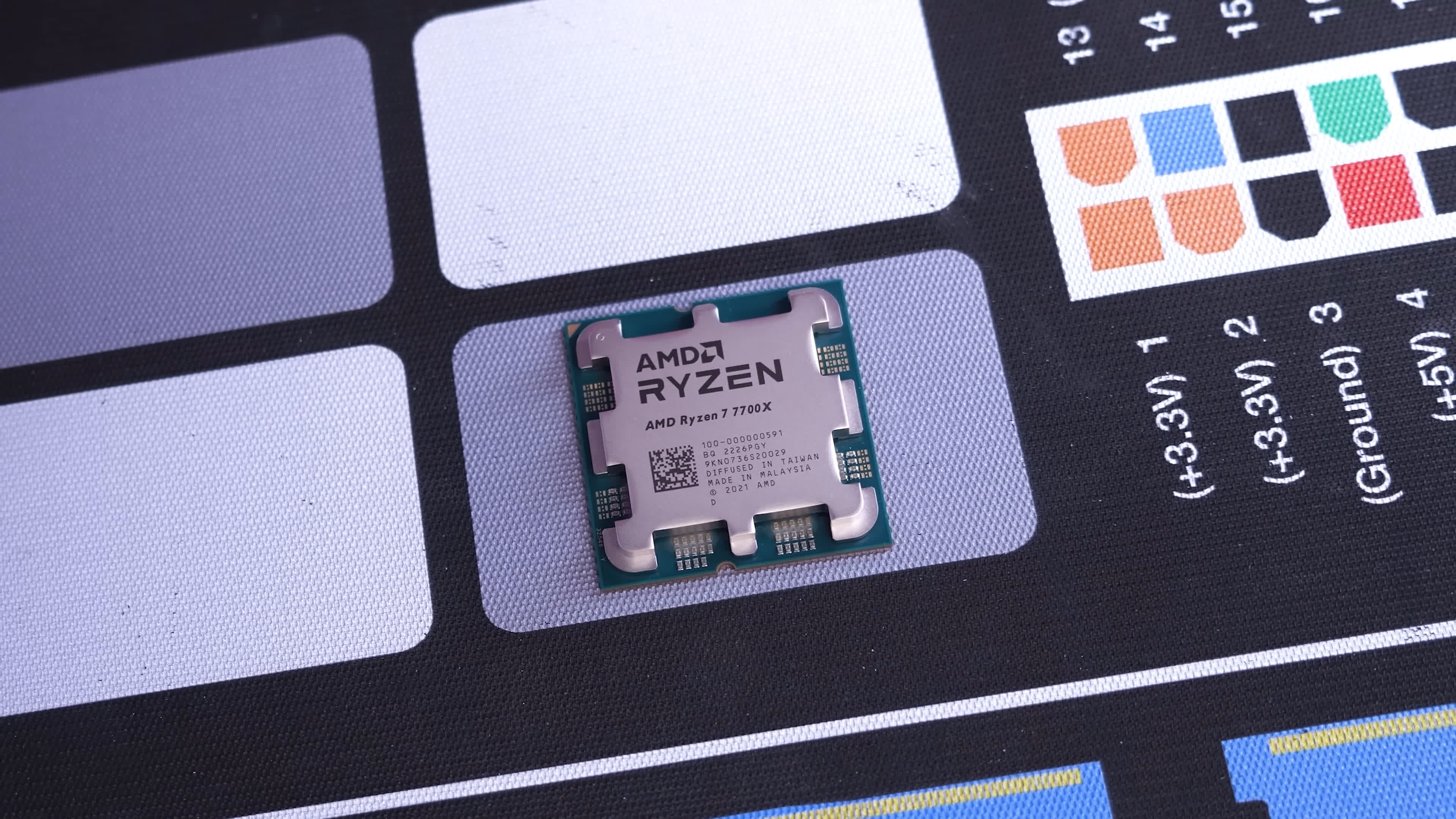
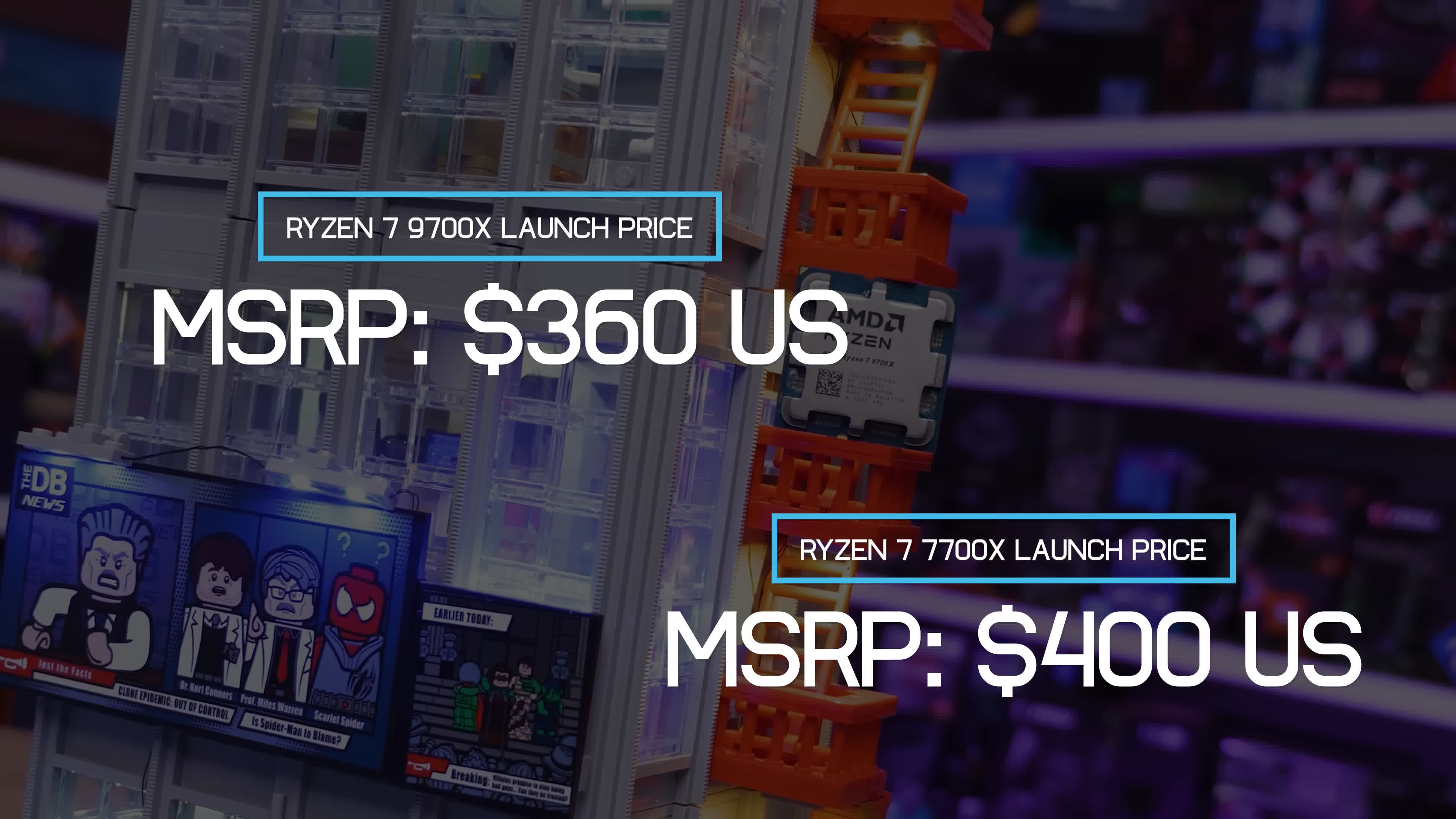
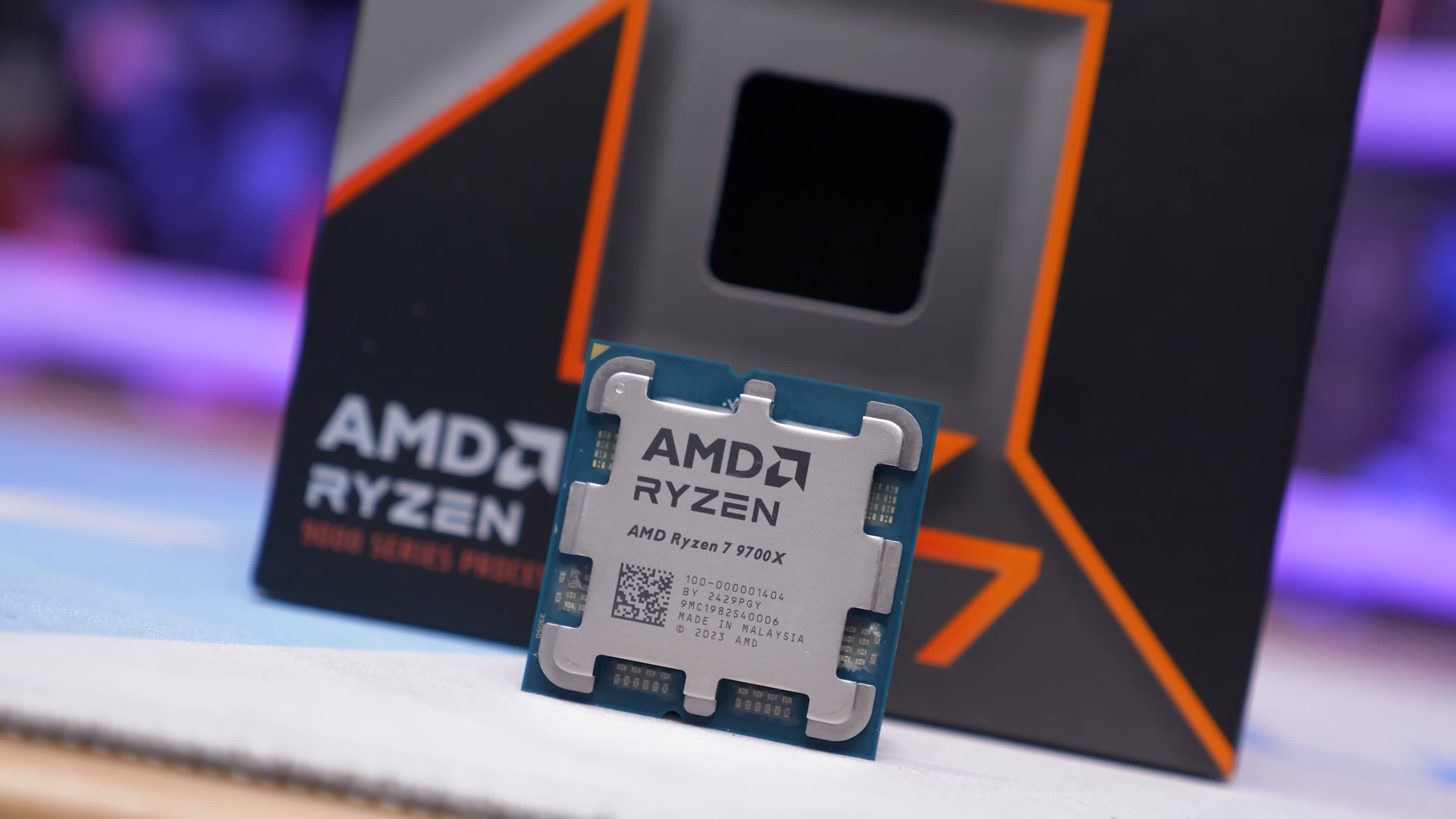
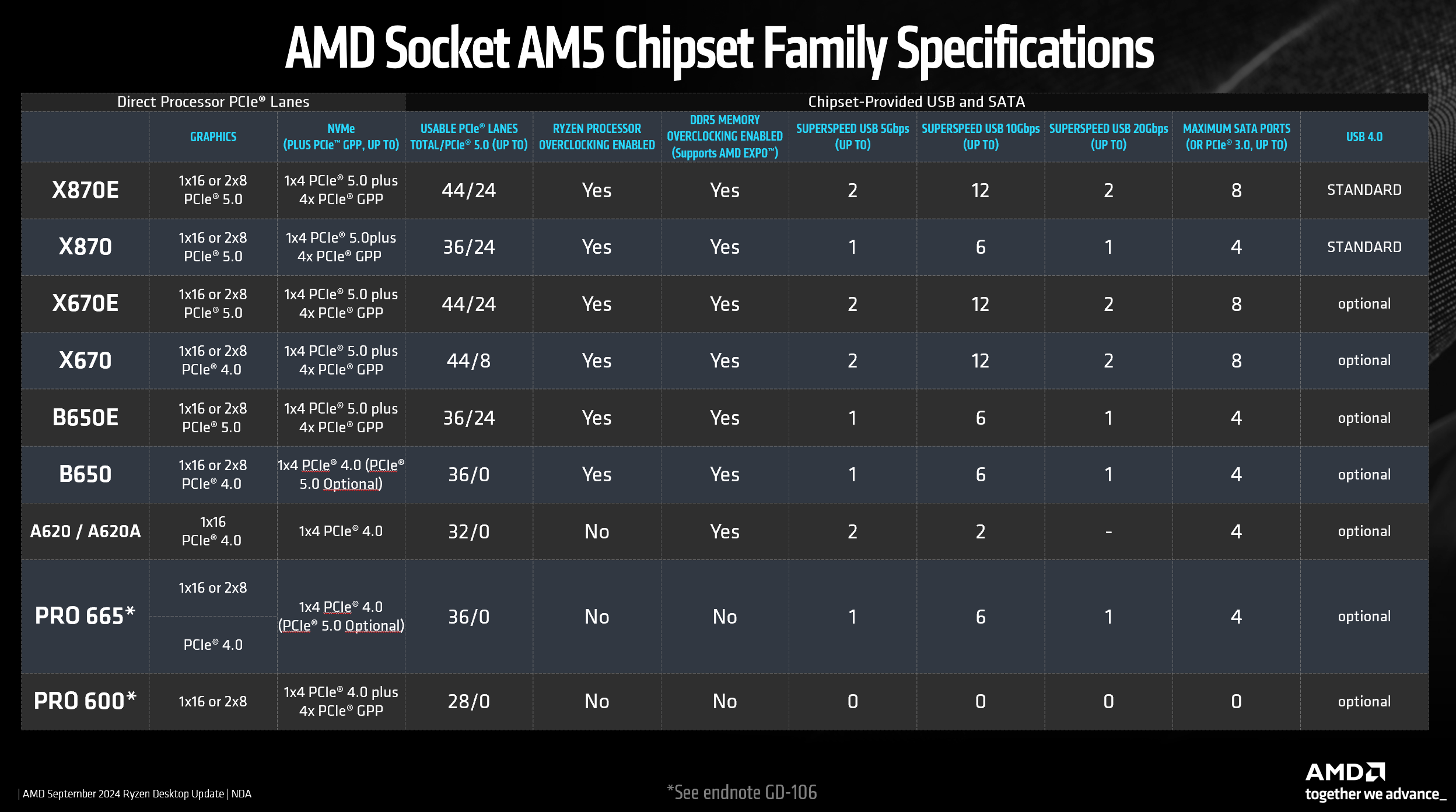
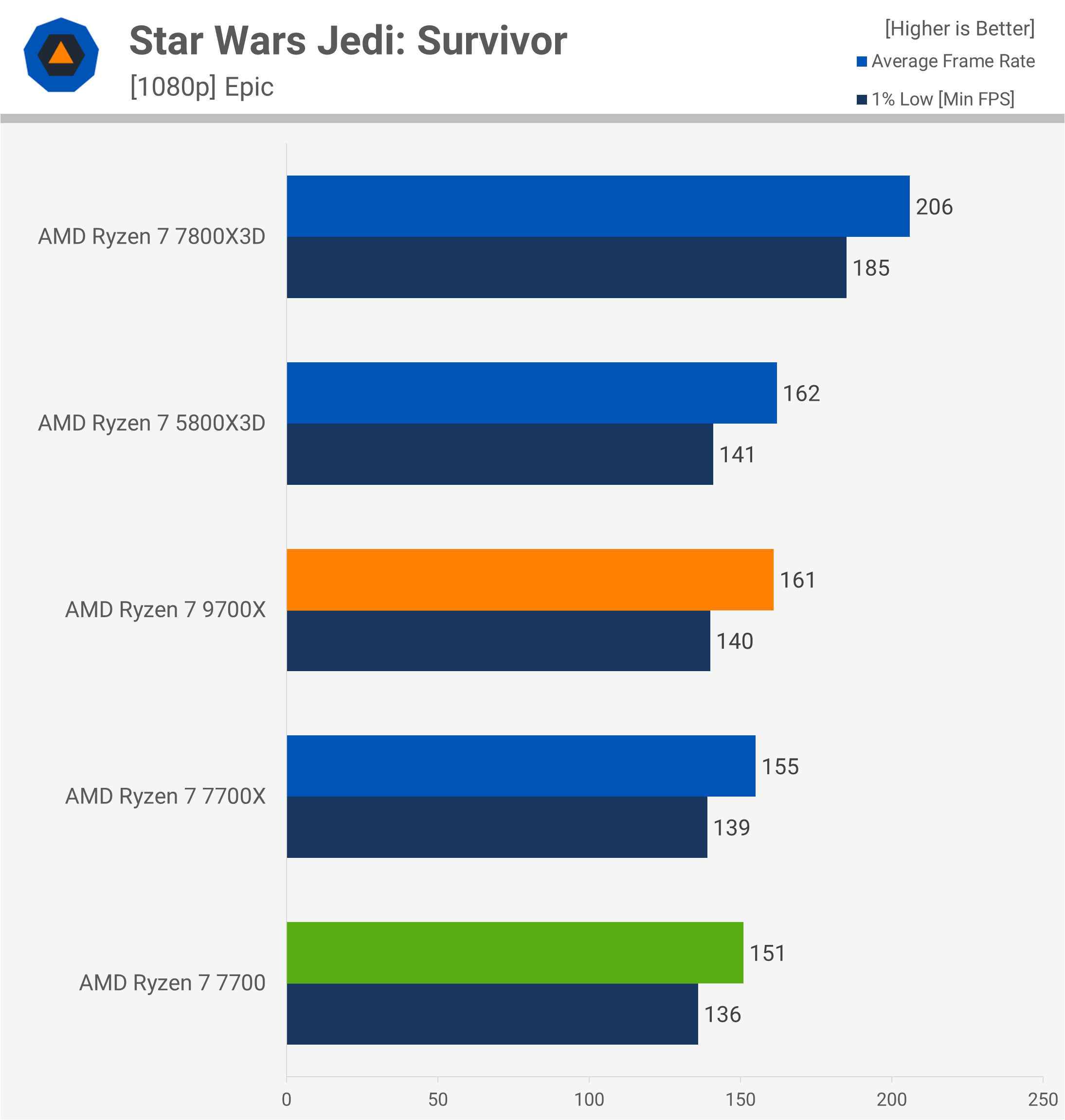
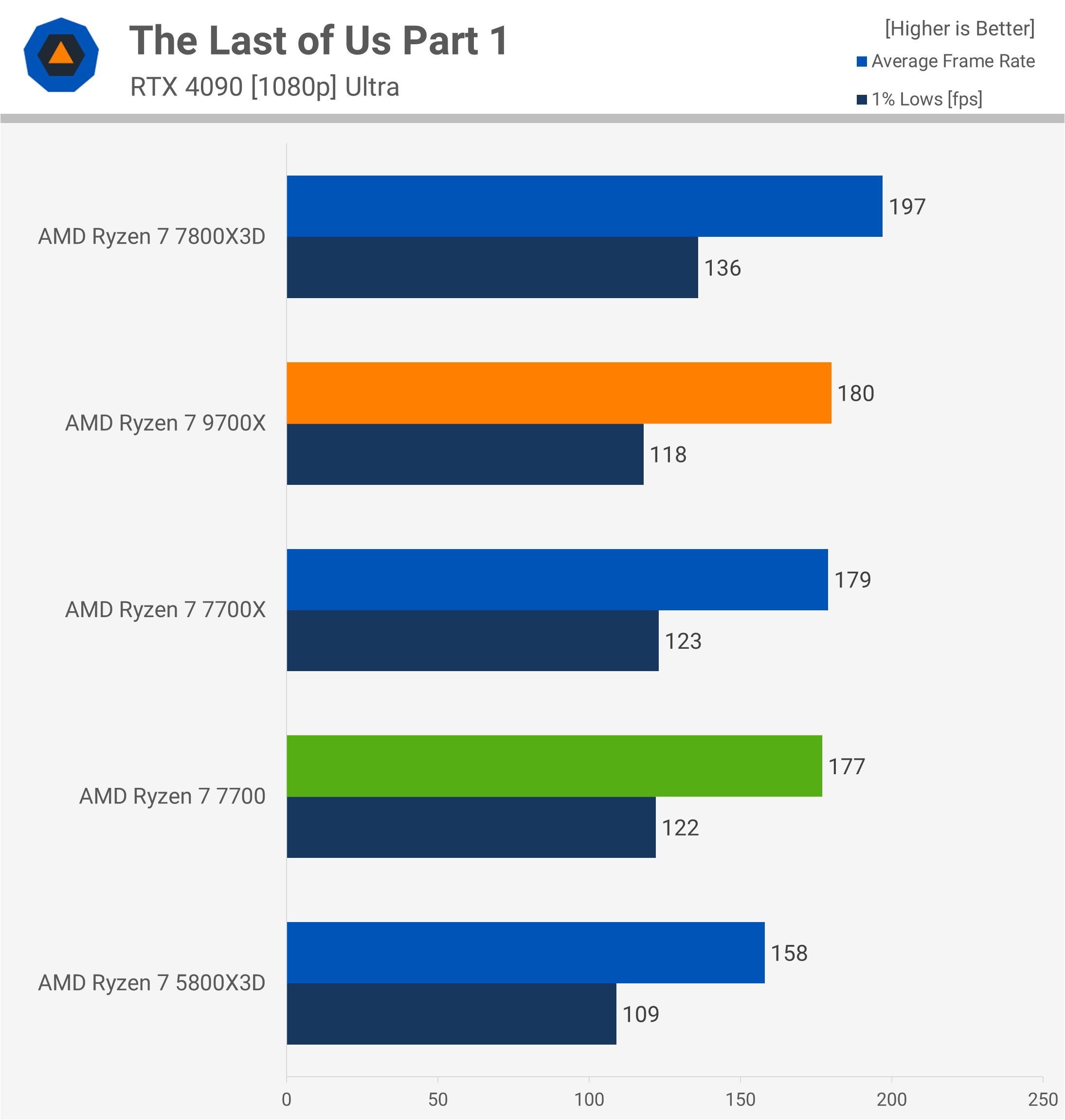

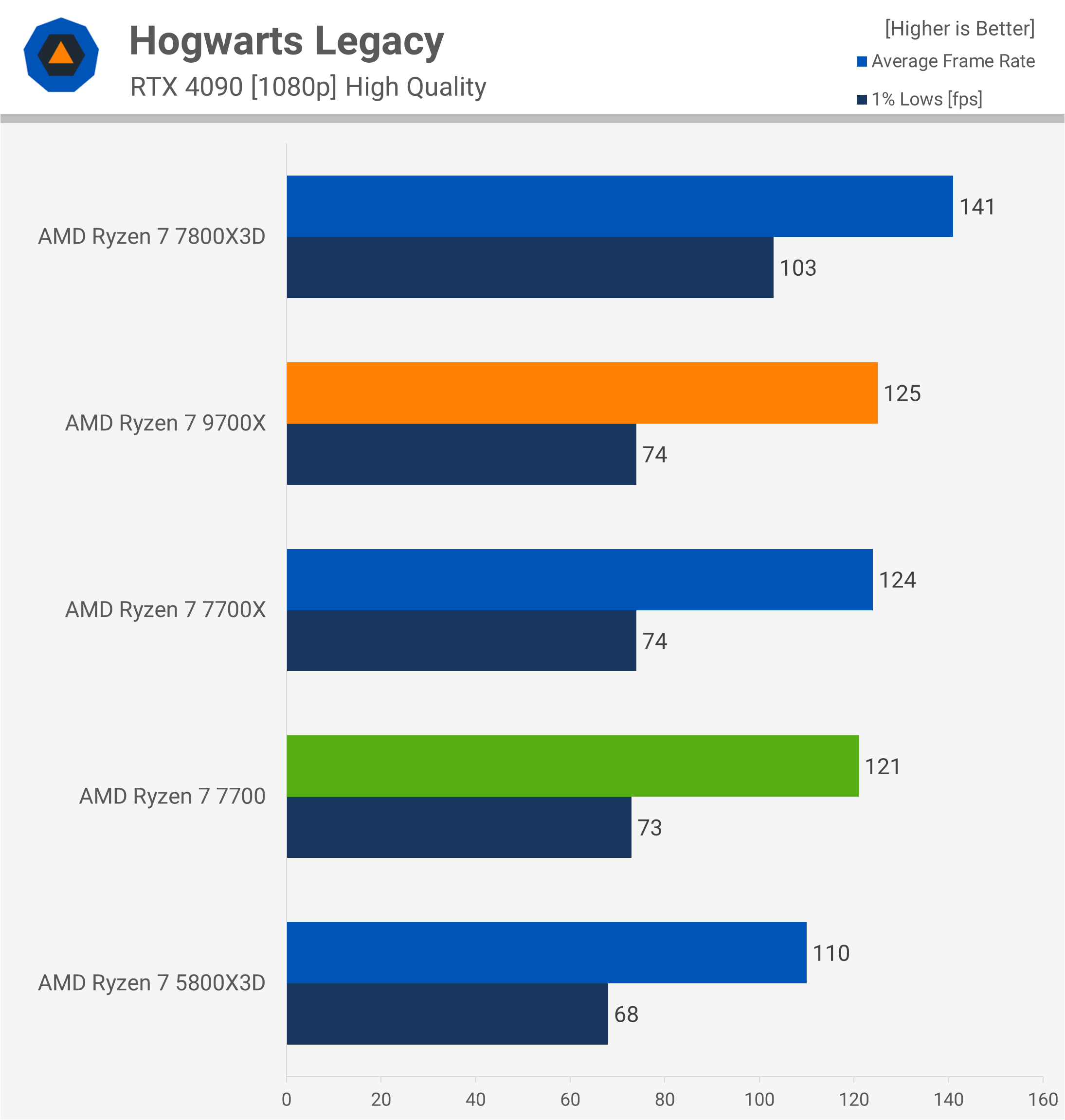

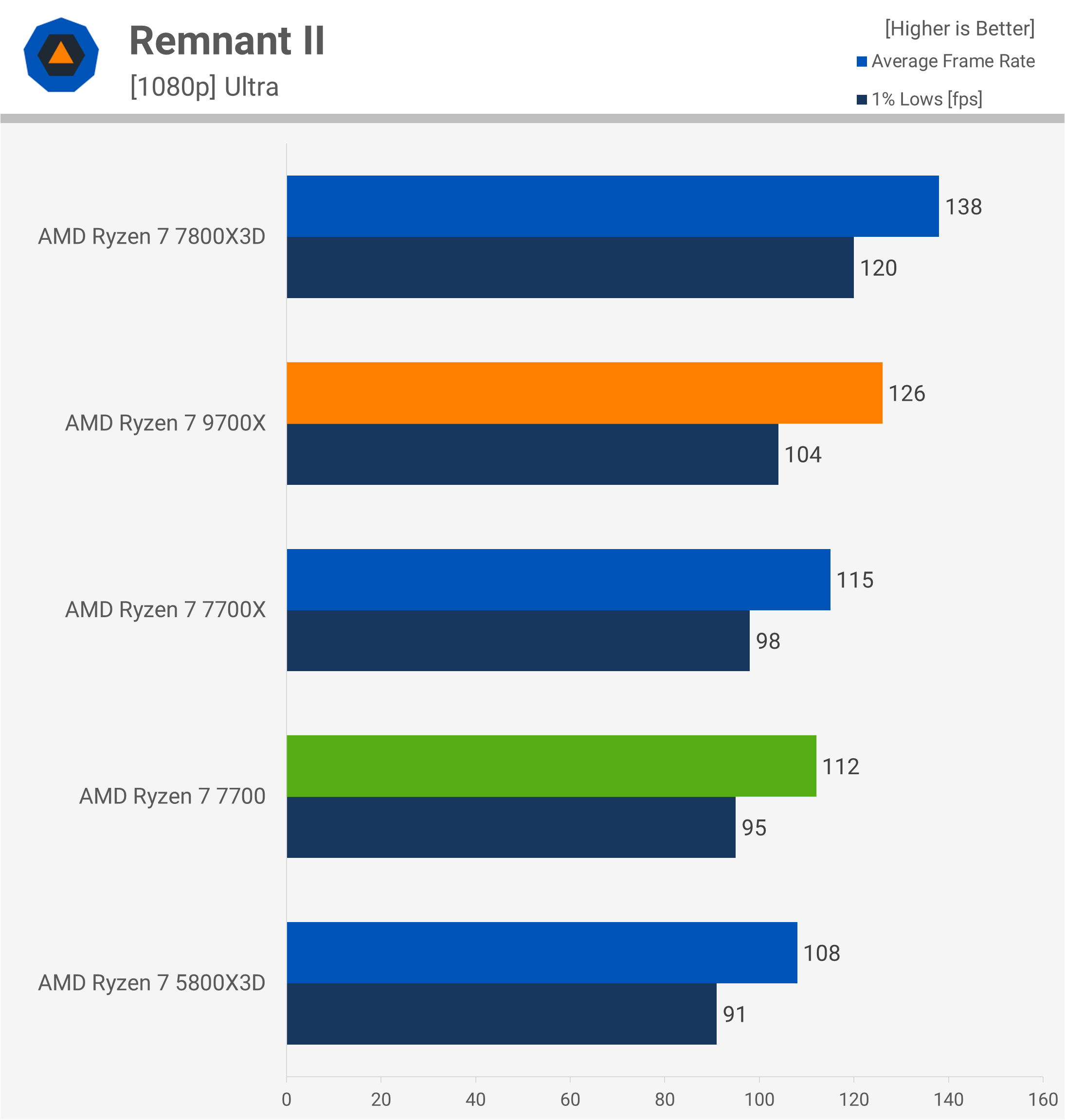

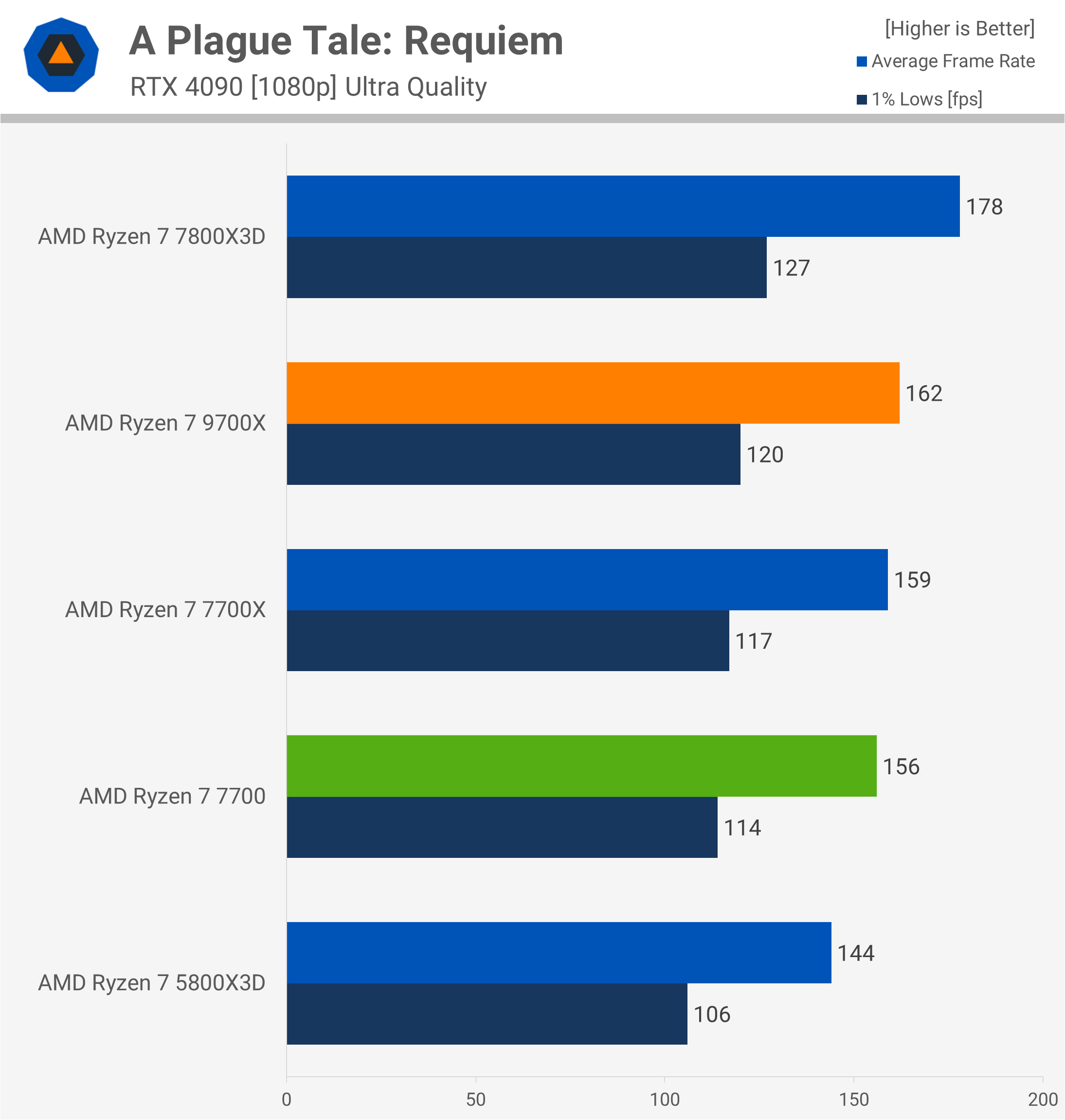

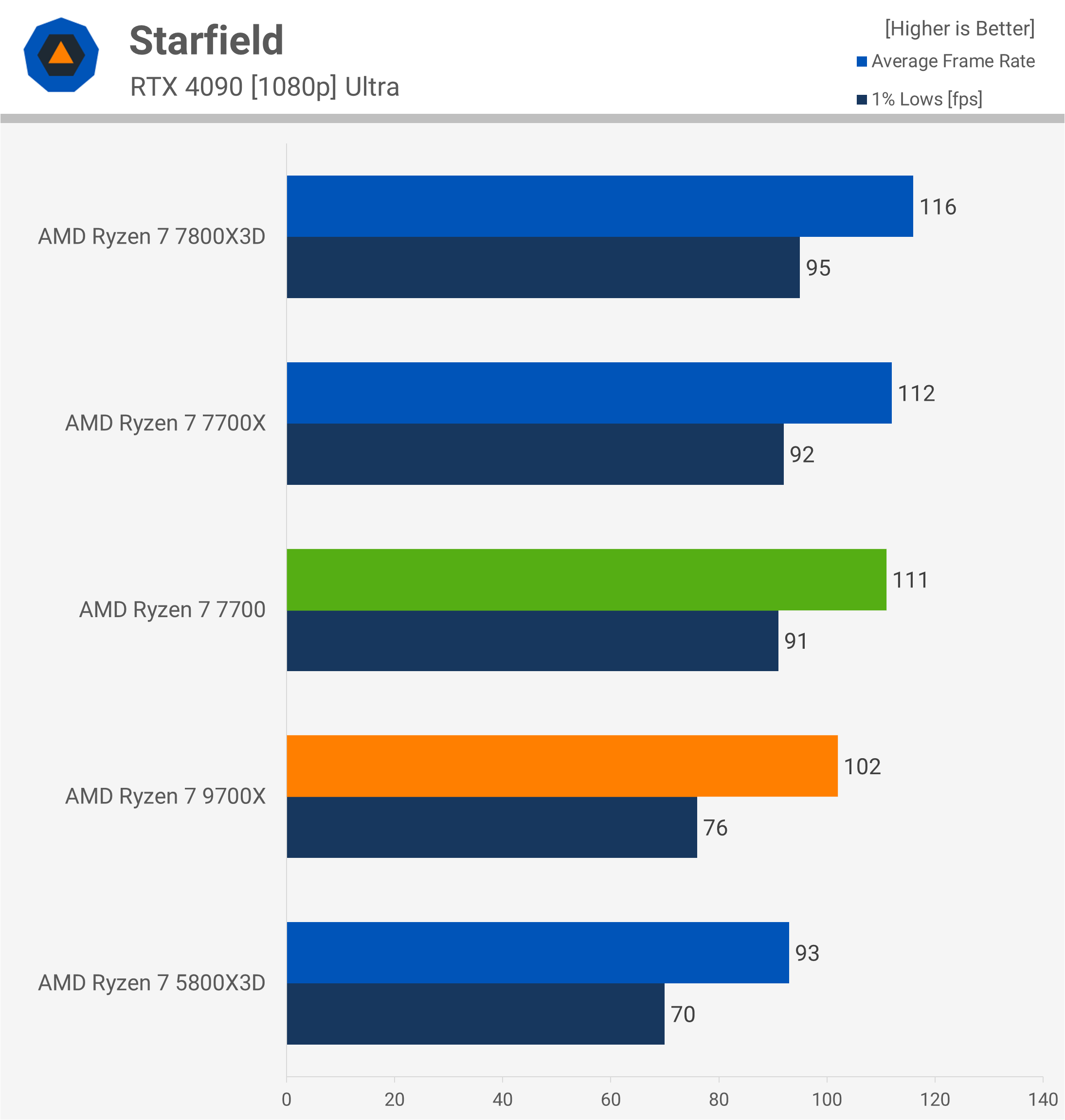
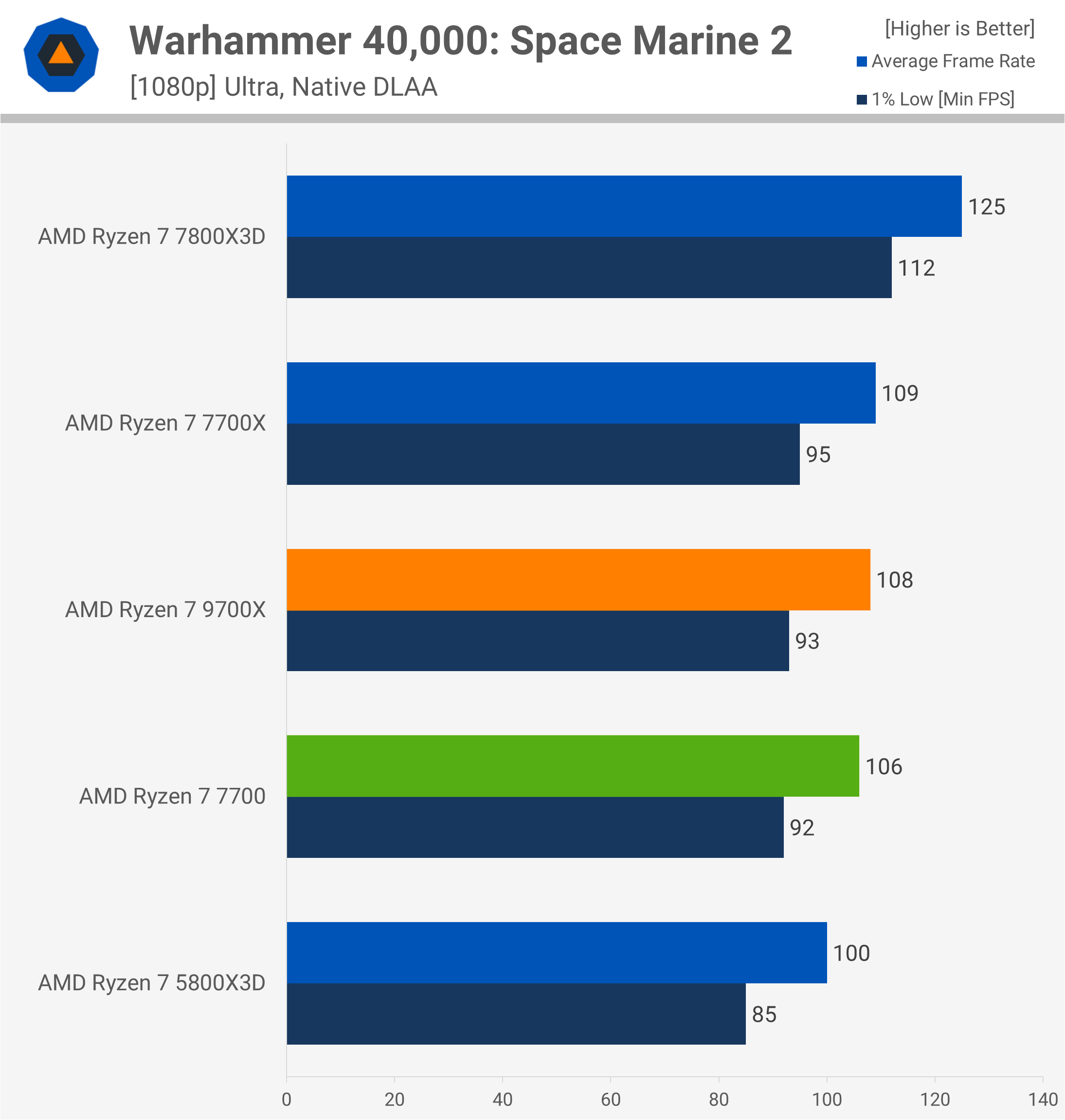
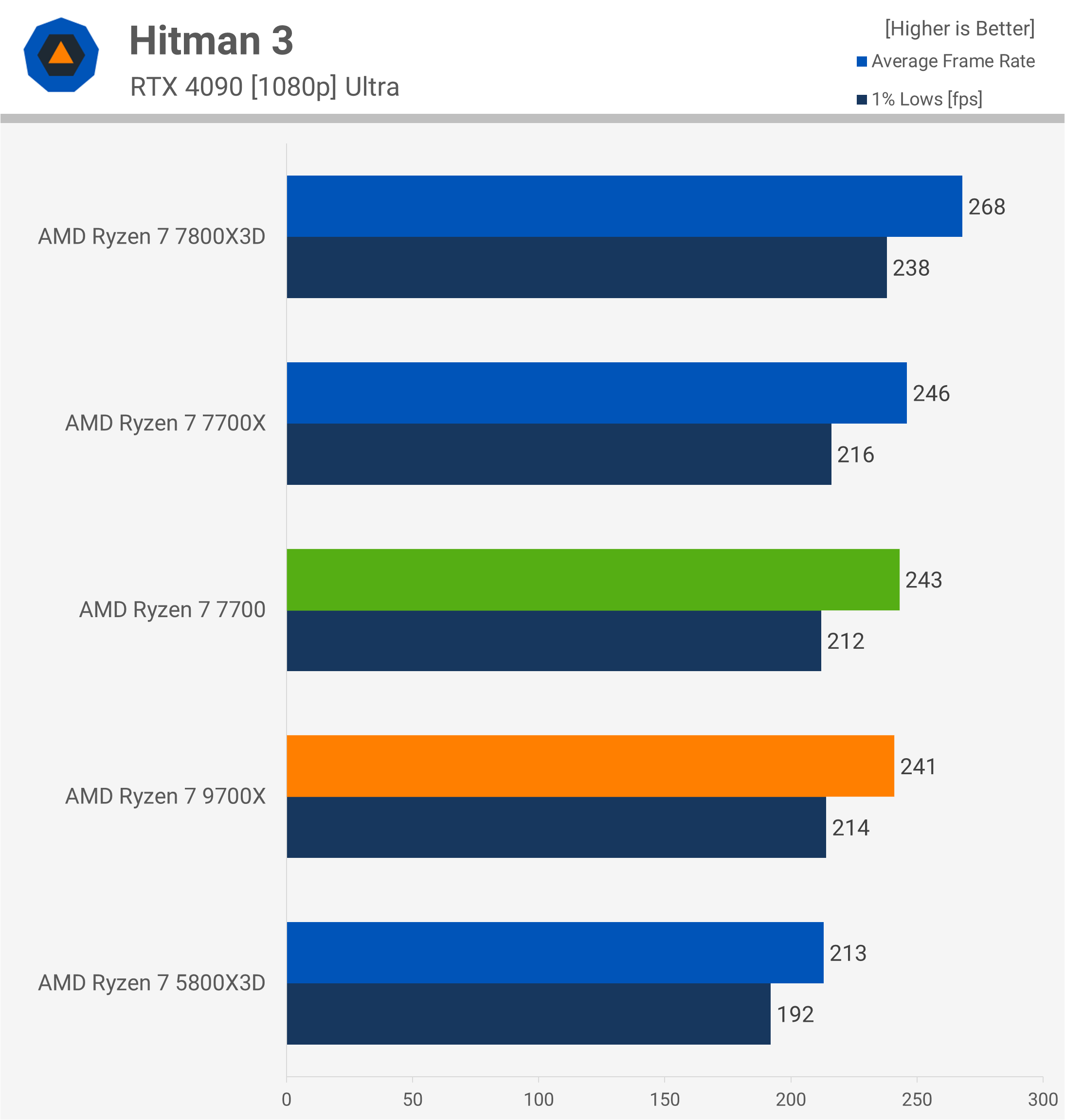
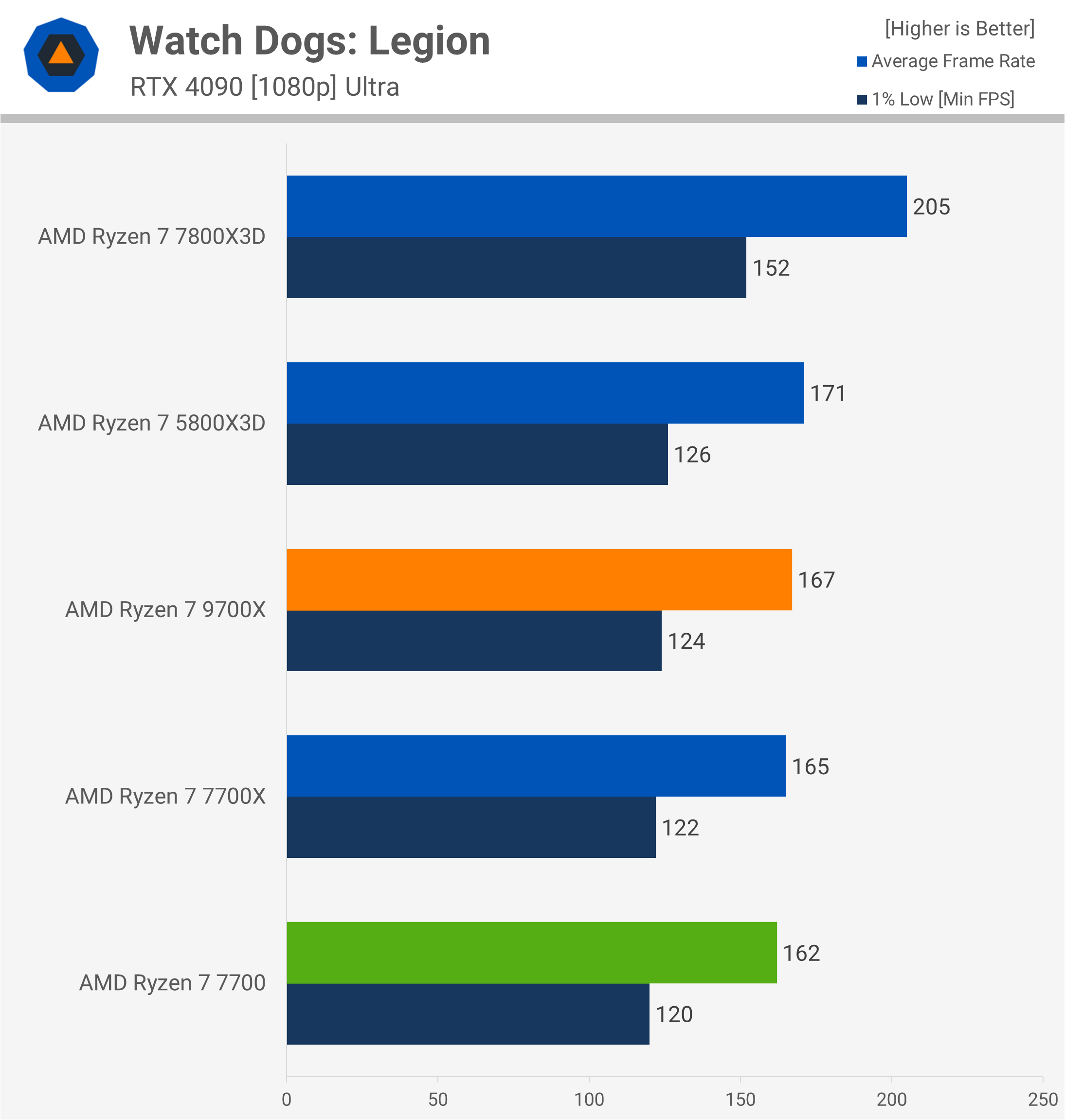
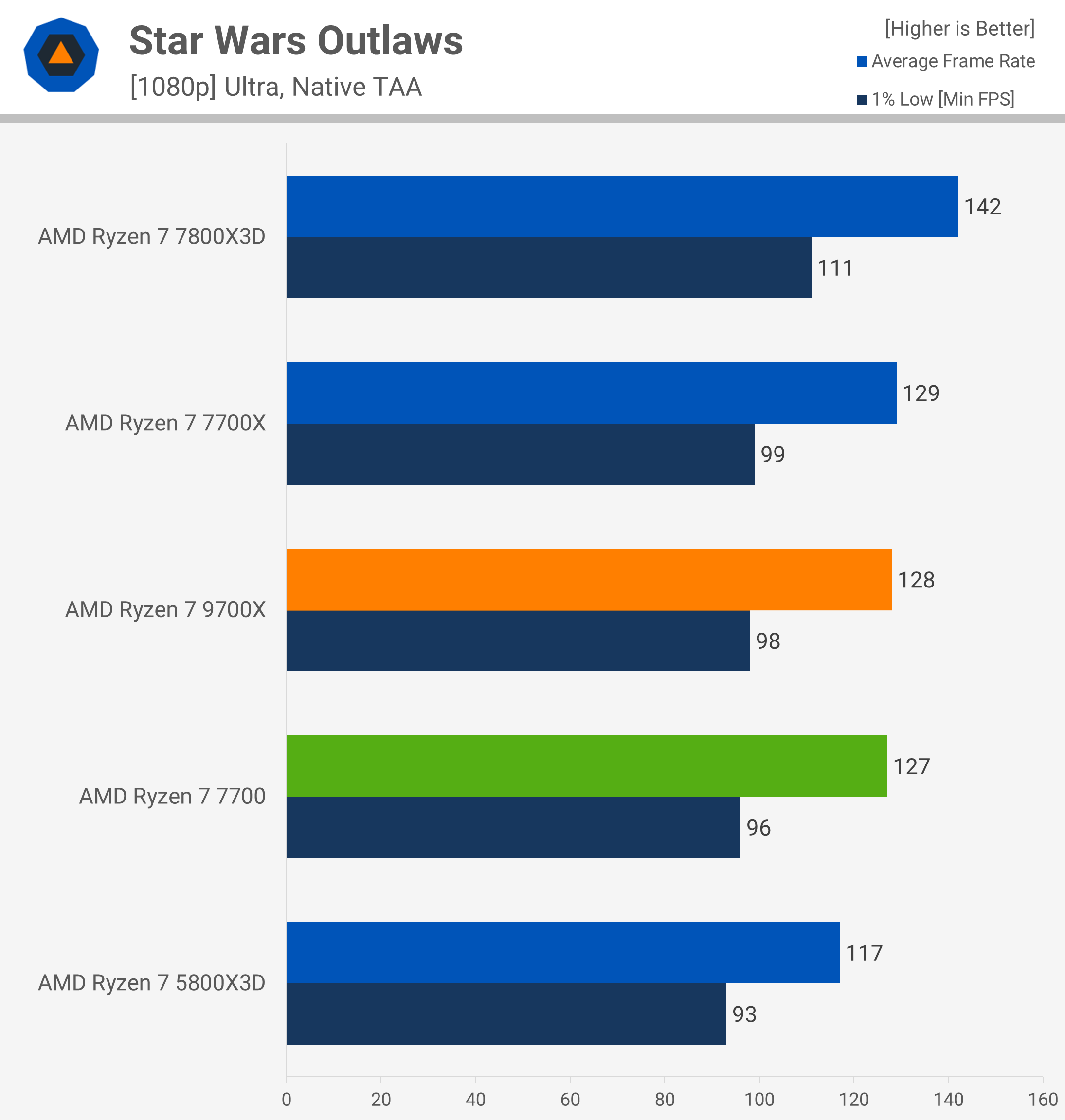
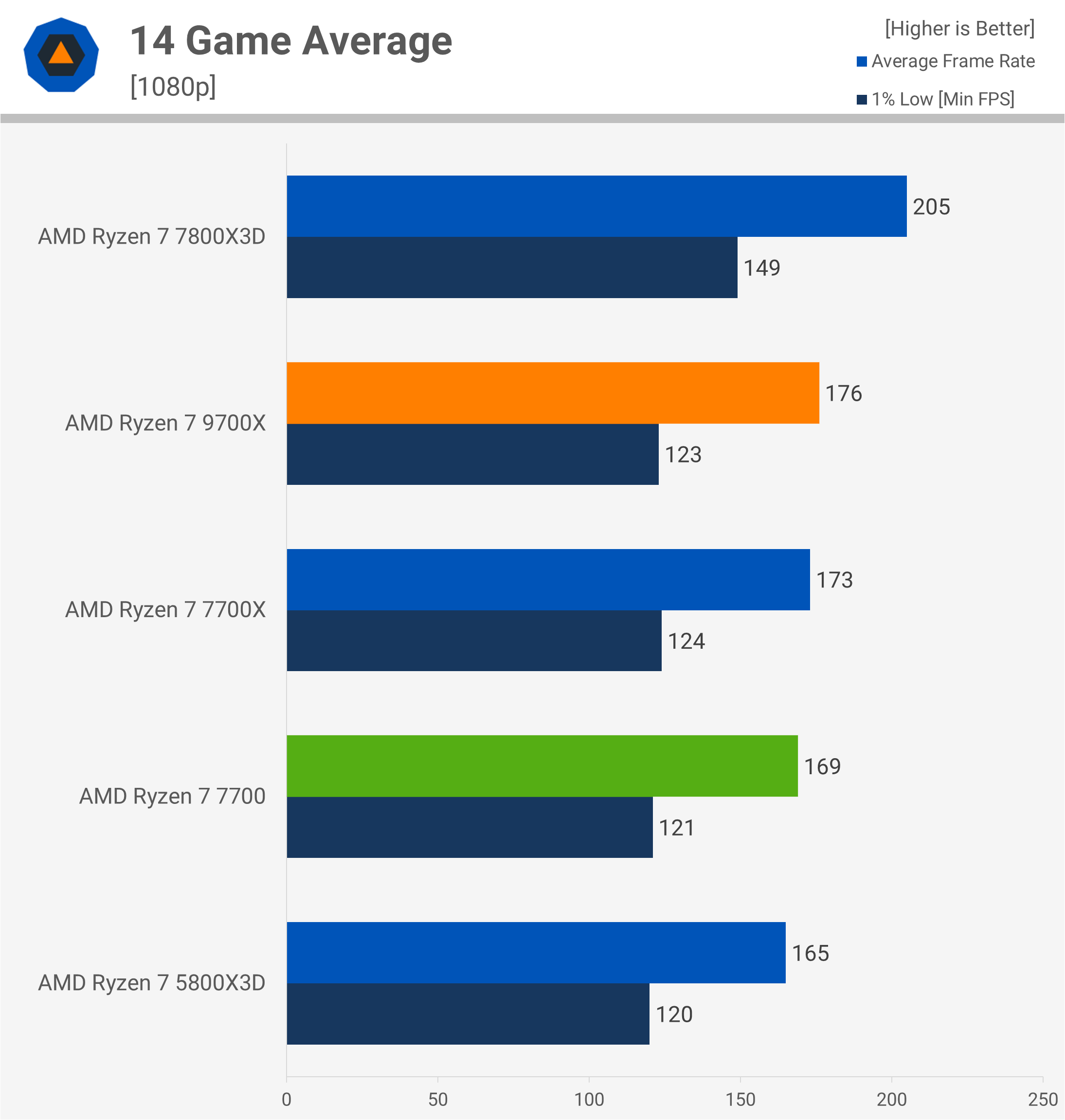
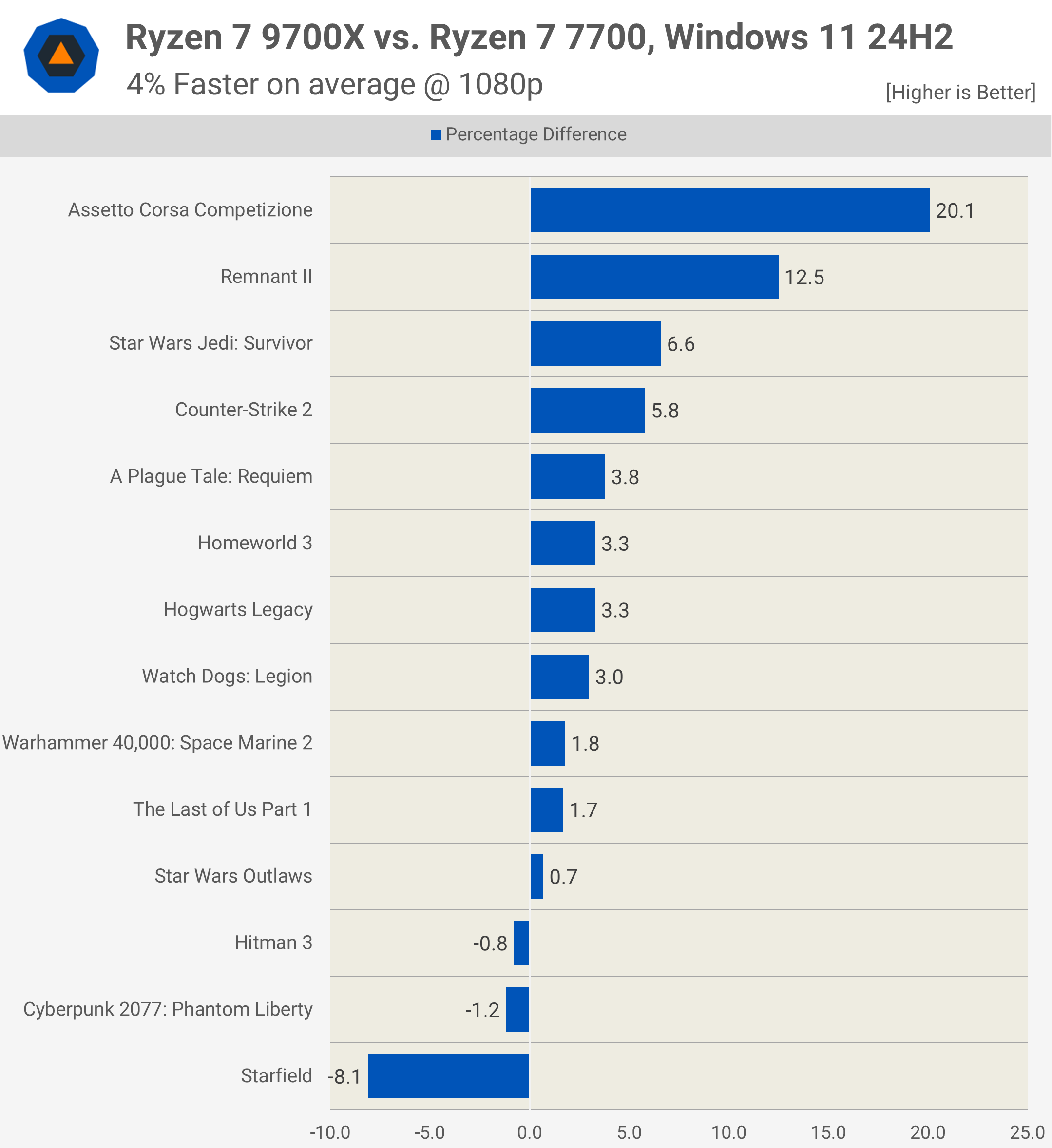
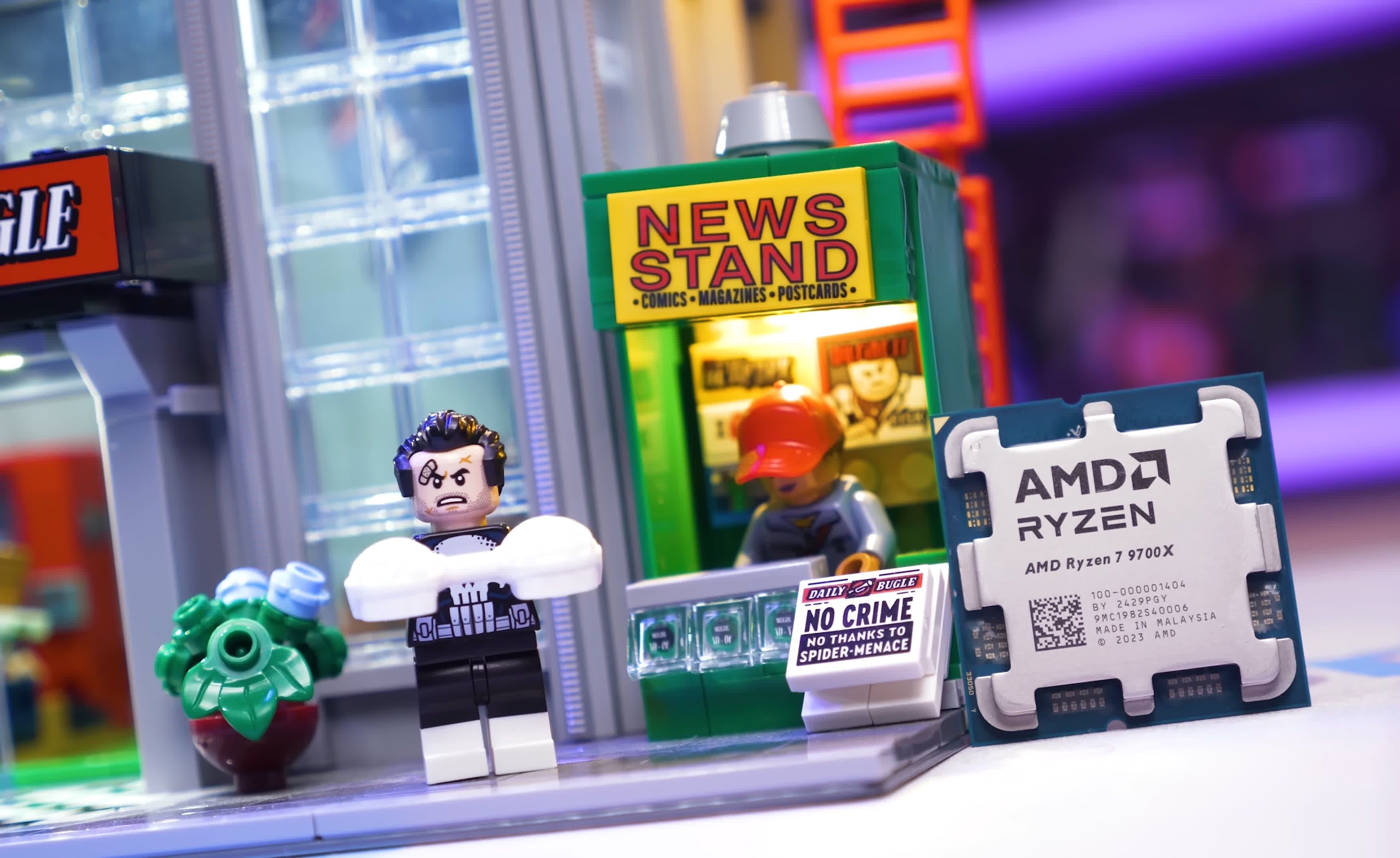
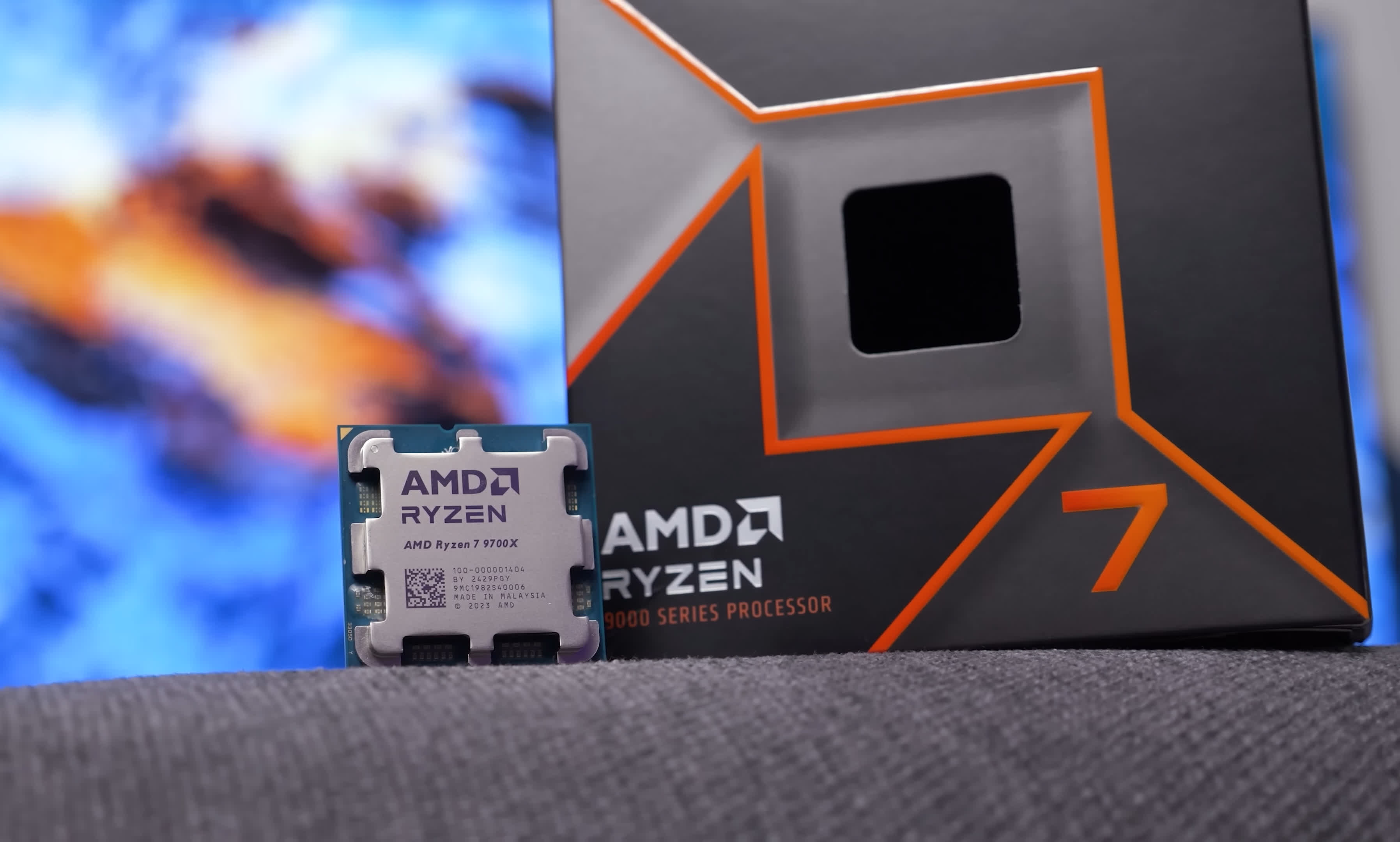
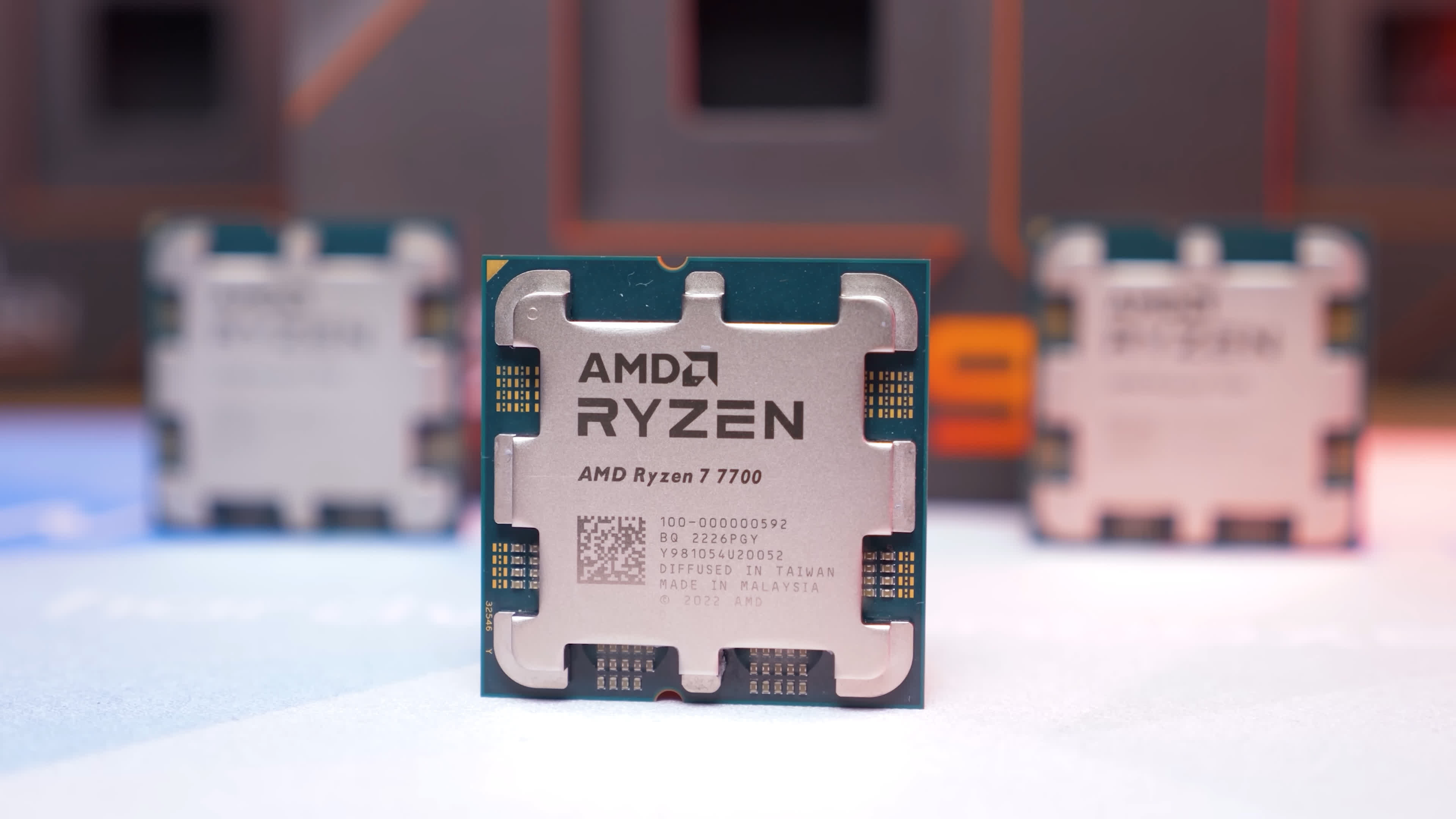
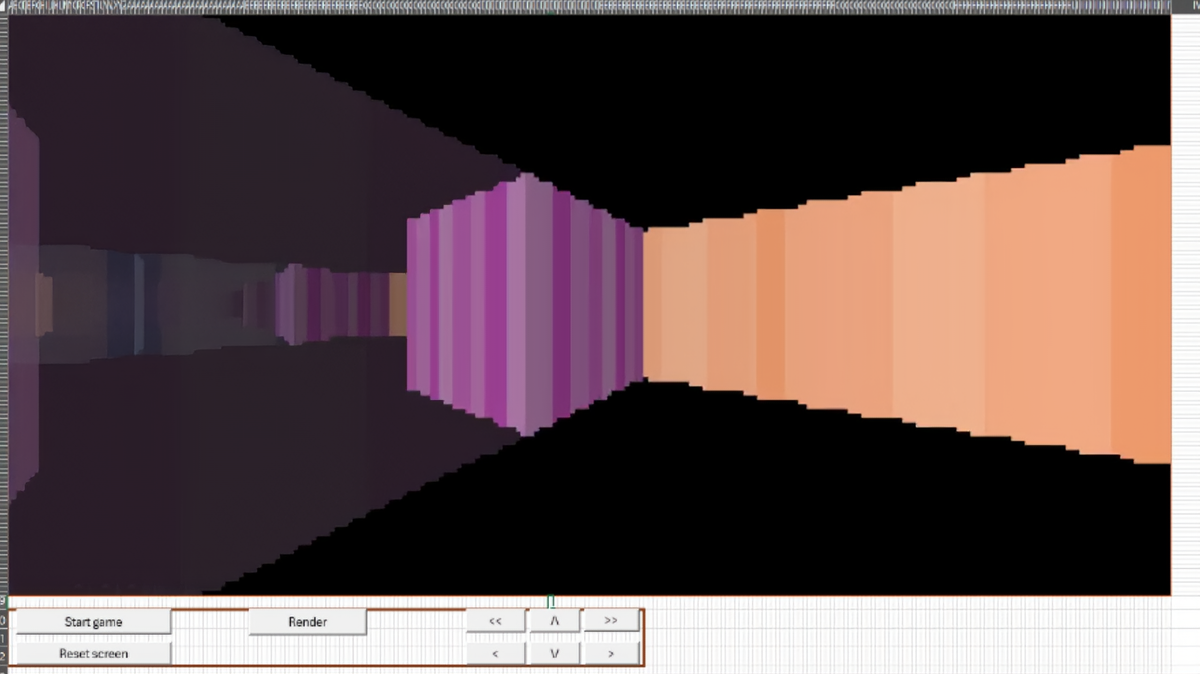
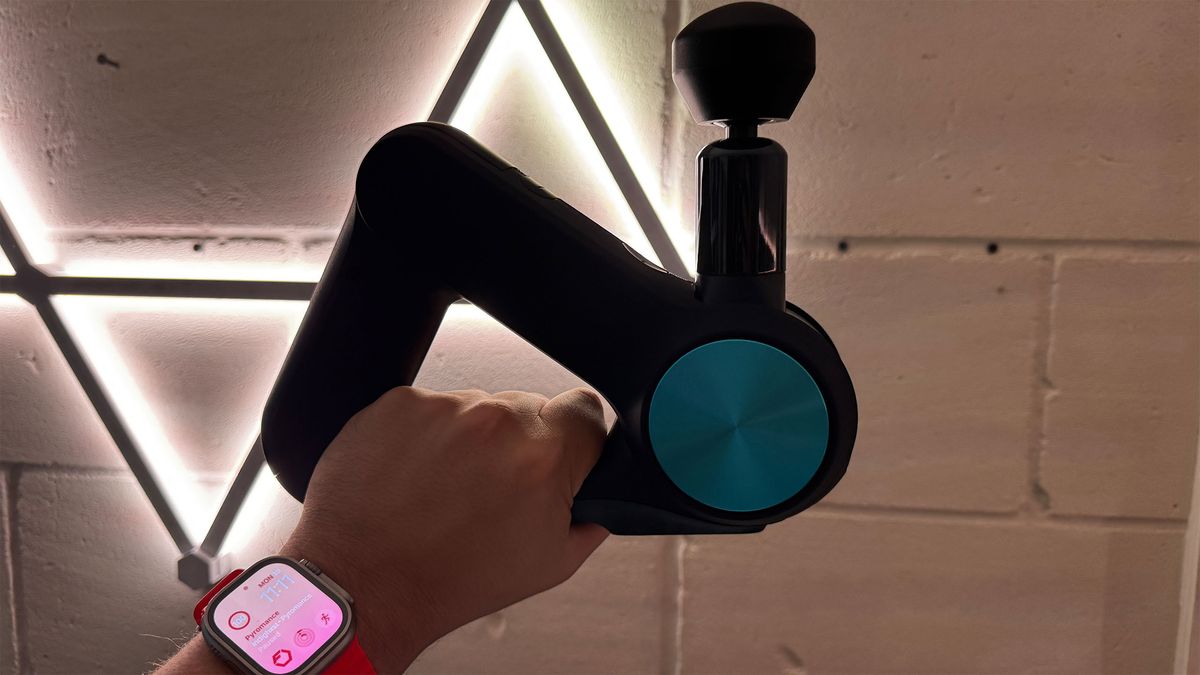


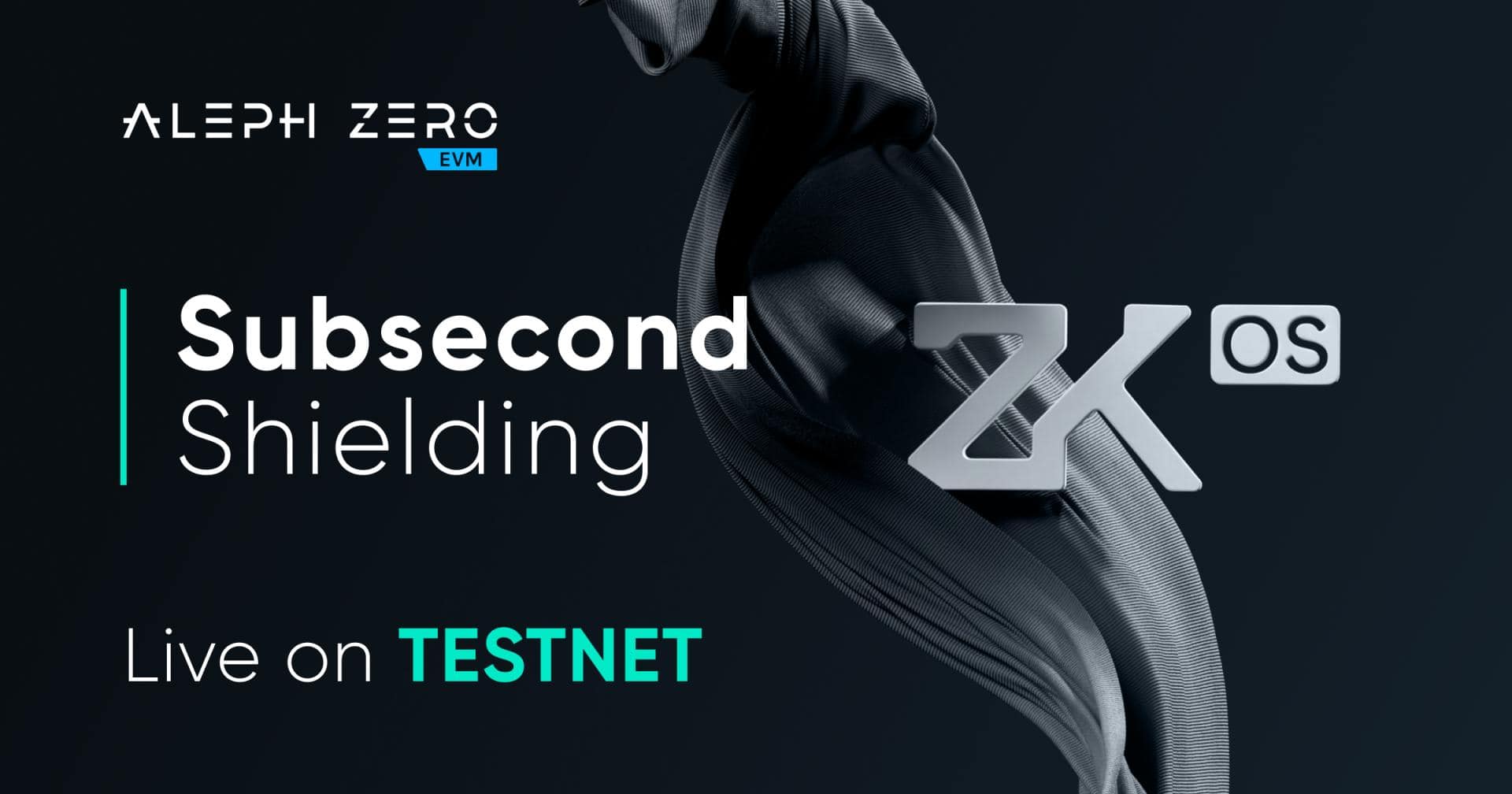
:quality(85):upscale()/2024/10/17/848/n/1922729/9dece426671163b35dcb11.60305022_.jpg)


 English (US) ·
English (US) ·